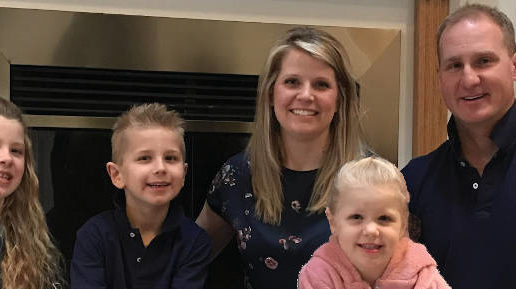
Canadian farmers live in the eye of a mental health storm. Its devastating wake includes higher levels of stress, anxiety, depression and suicide than experienced by the larger population.
But not all of the news around mental health is bad. As organizations roll out mental health supports tailored to the farm community (see related story on Page 12), another group of mental health advocates say there are things farm folk can do now to improve their ability to deal with the pressures of a high-stress occupation. In other words, build resilience.
“Stress is demanding and challenging and some of this is good,” says Kathy Somers, head of the Stress Management and High Performance Clinic at the University of Guelph. The issue is balancing demands with resources. A teeter-totter works when it’s evenly balanced and moving up and down. It’s annoying, scary and potentially dangerous when it’s stuck with demands on one side that far outweigh resources on the other.
The way we talk about stress also factors into how we cope, say Lorna Callbeck Cross and Cassie Josephson of People Things Consulting, a mother-daughter team that teaches psychological first aid to clients working in agriculture. “Stress can be a badge of honour,” says Callbeck Cross. Adds Josephson: “How can we talk about improving mental health when we can’t talk about what stress does to mental health?”
CAN WE BOOST RESILIENCE?
Research beginning in the 1950s found that one-third of children living in homes with unemployment, poverty, alcoholism and/or mental illness grew up to be adults with good physical and mental health, coping well with their careers and in life, despite their childhood hardships and disadvantages.
This sparked interest in learning what made that one-third resilient despite difficult circumstances, and how we could all learn to be more resilient. Over time, researchers applied the same idea to mental wellness. Their research asked why some people “bounce back after trauma and some even come out of the experience stronger,” explains Somers.
People who struggle with mental wellness may tire of people who tell them they should be more resilient, but it’s a bit of a catch-22, says Somers. While resilience matters, it’s not fully in our control. “Some people are more likely to do the work to improve resilience and some are more able. ” More simply put: some people have a full tank of gas while others need to refuel.
She recommends farmers and farm families adopt five strategies to improve their capacity to cope with stress.
1 Learn how to self-calm
Stress can be debilitating. Athletes are taught to channel stress into performance. Farmers can use similar strategies to slow heart rates and calm tumultuous thoughts. Somers’ website includes a five-minute self-calming exercise (https://www.selfregulationskills.ca/). This technique helps people focus attention on what they can control.
2 Practice self-care
Learn what you can do to improve sleep. Every three to four hours, eat some nutritious protein with carbohydrates, foods that fuel your body. Get physical exercise. Be mindful of substances, including caffeine and alcohol, which impede self-care and escalate anxiety. Self-care is a fundamental part of the psychological first aid classes taught by People Things Consulting. Callbeck Cross urges people to redefine self-care so they can work it into daily routines. Is it a few uninterrupted minutes with cup of tea? A walk? A virtual visit with a friend? “Think about what brings you joy or comfort,” adds Josephson.

Kathy Somers is head of the Stress Management and High Performance Clinic at the University of Guelph.
3 Tap into your connections
Right now, pandemic protocols make it difficult to attend social events, church services and workshops, so look for other ways to connect with people — Skype, talk on the phone, FaceTime or visit in small groups while maintaining social distancing. (Follow your local COVID-19 public health safety protocols.)
4 Hone a positive perspective
Somers encourages people to be grateful, on purpose. Share what you see in the natural world. When something bad happens, think of four “good” things to balance your perspective. “Sometimes, our job as adults is to unstick our brains,” she says. “Negative thoughts can spiral. Grooves get deeper and are habit forming.”
5 Pay attention to your self-talk
“What are you saying to yourself inside your head?” asks Somers. A resilient person recognizes the problem, but moves forward. The less-resilient get mired down by focusing on problems rather than actions.
All of this makes sense to Jinel Ference. She and her husband Craig are part of a two-generation cow-calf and feedlot near Kirriemuir, AB. “Even when it’s negative and times are tough, we do our best to find the positive and persevere,” says Jinel.
This year’s spring work was complicated by pandemic protocols that closed the school their three kids attend. COVID-19 also means no dance, no soccer and a temporary shutdown of the meat packer that takes animals from their 8,000-head feedlot. They also decided against bringing in four farm workers from Sweden, opting to train in-country staff to help instead.
“But we live in a really good community. People check in with each other. We have kind people to communicate with,” says Jinel. “We’re both pretty aware of the stress and pressure that comes with this business. We have no trouble talking about it, no trouble asking: ‘How are you feeling today? What can I do to help you out?’”

Lorna Callbeck Cross
and Cassie Josephson
MOTHER AND DAUGHTER TEAM
PEOPLE THINGS CONSULTING
All the extra stress aside, Jinel says the pandemic has given them “more time to be with our favourite people. ” When they look back on this time, she hopes their kids remember how COVID-19 allowed them more trips to the calving pastures, more opportunities to jump into the truck with their dad and more time to, as she says, “enjoy the pleasures of the farm.”
KEEP TALKING
Individuals deal with stress differently, so checking in with others is critical, says Josephson. People can learn to identify the times when their reactions to stress are not appropriate. Other times, they may need help redirecting stress. “We need to learn how to say to each other: ‘I didn’t like how this went. I want to try and change it. Can you help me so that the next time it happens we can resolve it in the moment instead of in a day or two?’”
“People can’t read your mind so it’s not fair to say: ‘He should have known, she should have known,’” adds Callbeck Cross. “Besides, everyone is a little raw right now. All of us are experiencing our first pandemic.”
Give yourself a pep talk
Life got you down? Mental health trainer Kathy Somers offers proven pep-talk tips:
- Tell yourself: I will handle it.
- Ask yourself: What can I do to cope through this?
- Remind yourself: It’s okay to feel this way. I can be compassionate and accepting of my reaction.
- Take a break and tally your successes. Recall: How have I dealt with this before? Who can help me this time?
- Remember: I cannot control the wind, but I can adjust my sails.